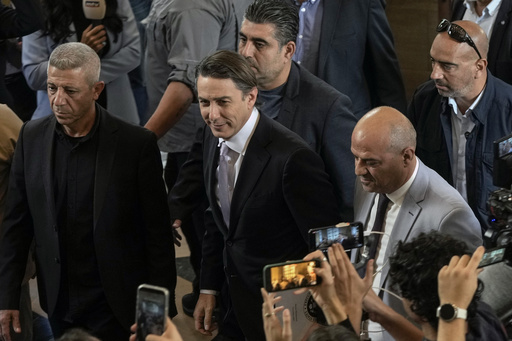
Israel’s defense minister has asserted that the nation reserves the right to take military action against Hezbollah as a prerequisite for any potential agreement to conclude the ongoing conflict in Lebanon. This stance is likely to clash with the Lebanese government’s perspective, which may see such a demand as a violation of its sovereignty, thereby complicating negotiations aimed at resolving over a year of hostilities that escalated into open warfare in September.
In a statement made on Wednesday, Defense Minister Israel Katz emphasized that “the condition for any political settlement in Lebanon is the preservation of intelligence capabilities and the military’s right to act in defense of Israeli citizens from Hezbollah.” Efforts by Lebanese officials acting as intermediaries between Israel and Hezbollah have suggested a return to the framework of United Nations Security Council Resolution 1701, which effectively concluded the 2006 conflict between the two parties. This resolution includes provisions for the withdrawal of Hezbollah fighters and Israeli troops from a demilitarized zone in southern Lebanon, which is monitored by U.N. peacekeepers along with Lebanese forces.
U.S. envoy Amos Hochstein, who has dedicated months to facilitating a ceasefire, conducted a second round of negotiations on Wednesday with parliamentary speaker Nabih Berri, who is a supporter of Hezbollah and is mediating on its behalf. Hochstein reported that progress had been made in the discussions and indicated plans to travel to Israel in an effort to finalize an agreement, although he refrained from detailing specific obstacles.
According to the Lebanese Health Ministry, the ongoing confrontation has resulted in over 3,500 fatalities and approximately 15,000 injuries in Lebanon alone. The conflict has also displaced close to 1.2 million individuals, which constitutes roughly a quarter of Lebanon’s population. From the Israeli perspective, 87 soldiers and 50 civilians have lost their lives due to assaults involving rockets, drones, and missiles from Hezbollah. The latter began targeting Israel in response to Hamas’ attack on October 7, 2023, which precipitated the war in Gaza and resulted in around 1,200 casualties in Israel, primarily among civilians, alongside around 250 cases of abduction. Reports suggest that around 100 hostages remain in Gaza, with estimates indicating that at least a third may have died. In retaliation, Israel’s military operations have led to nearly 44,000 Palestinian deaths, as per local health authorities.
In recent updates, a Lebanese soldier tragically lost his life due to an Israeli airstrike Wednesday, which struck his vehicle on a road connecting Burj al-Muluk and Qalaa in southern Lebanon, according to a statement from the Lebanese army. The Israeli military has indicated that it is investigating these claims. Just a day prior, three other soldiers were killed when an airstrike hit their post in Sarafand, located near the coastal city of Saida.
Wissam Khalifa, a local resident in Sarafand who sustained injuries during the airstrike, expressed disbelief that the army post was targeted, claiming, “It’s a safe residential neighborhood. There is nothing here at all that would present a target. Regarding the slain soldiers, I don’t even know if there was a gun in the center. Why did this strike happen? We have no idea.” Notably, while the Lebanese army has generally refrained from direct involvement in the confrontations between Israeli forces and Hezbollah over the last 13 months, more than 40 soldiers have perished amidst the turmoil. Since October 8, 2023, over 3,500 individuals have died in Lebanon, with most casualties occurring in the last two months.
Also noteworthy is the case of an Al Jazeera journalist who sustained injuries from an airstrike in Gaza, who has been permitted to travel to Jordan for medical care. Jordan’s Foreign Ministry announced on Wednesday that Ali al-Attar was evacuated to the kingdom with his sister, facilitated by coordination with the World Health Organization. Israeli authorities have not issued immediate comments regarding this evacuation. Al-Attar was injured by shrapnel during an Israeli strike targeting installations allegedly used by Hamas police outside a hospital in central Gaza on October 7, which occurred during their absence.
This follows earlier actions wherein Israel barred Al Jazeera from operating, alleging that the network acts as a voice for Hamas. Israel has further accused six Al Jazeera journalists in Gaza of being either current or past members of Hamas or another militant organization. Al Jazeera has refuted these claims, insisting that Israel is attempting to undermine coverage that critiques its actions. Since the conflict began, the Qatar-based network has provided continuous reporting from Gaza, focusing specifically on civilian casualties from Israeli strikes, despite numerous correspondents suffering injuries or loss of life themselves. Al Jazeera has also aired unedited videos from militant groups, some of which depict Israeli hostages being coerced.
